#grand duke sergei mikhailovich
Explore tagged Tumblr posts
Text
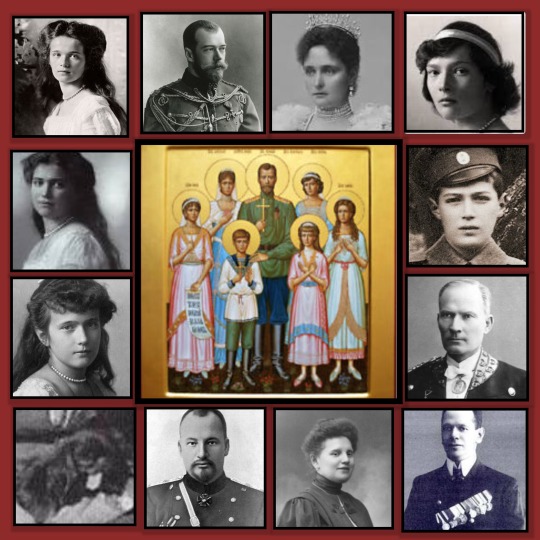
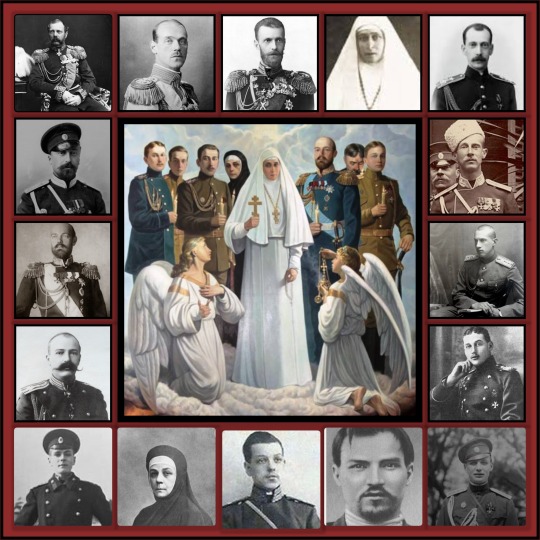
The Romanov Martyrs
I wanted to put together a little memorial that included all the members of the Romanov Family (as well as the members of their staff) that were murdered by the Bolshevik terrorists. This seems like a good week to keep them in our minds. Although we love and mourn the children especially, there were others we cannot forget.
Tsar Alexandre II was hunted down until finally blown to pieces.
Dowager Empress Maria Feodorovna lost two sons and five grandchildren (no wonder she could not accept they were dead)
Grand Duke Sergei Alexandrovich was also hunted down and blown to pieces
Three Mikhailovichi brothers were murdered
Four Konstantinovichi were murdered, three of them brothers; I cannot imagine what their mother, Grand Duchess Elizabeth Mavrikievna, went through...and so on.
May they rest in peace.
#russian history#imperial russia#romanov family#Nicholas II#Tsar Alexander II#Empress Alexandra Feodorovna#Grand Duchess Elizabeth Feodorovna#OTMAA#Grand Duke Mikhail Alexandrovich#Grand Duke Sergei Alexandrovich#Grand Duke Pavel Alexandrovich#Grand Duke Nicholas Mikhailovich#Grand Duke Georgiy Mikhailovich#Grand Duke Sergei Mikhailovich#Grand Duke Dmitry Konstantinovich#Prince Ioann Konstantinovich#Prince Igor Konstantinovich#Prince Konstantin Konstantinovich#Dr. Eugene Botkin#Anna Demidova#ivan karitonov#Akexei Trupp#Sister Varvara Yakolevna#Feodor Remez#mr. johnson
73 notes
·
View notes
Photo
There are four individuals I do not recognize. Actually, this is an impressive gathering of Grand Dukes and Duchesses. I have included all the names of individuals in the group that I recognize on the tags.
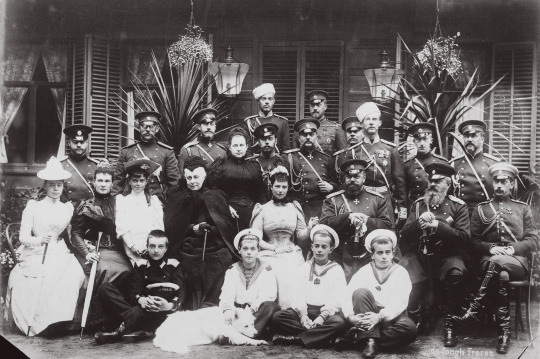

Emperor Alexander III surrounded by family
#Grand Duke Konstantin Konstantinovich#Grand Duke Sergei Mikhailovich#Grand Duke Nikolay Nikolaevich#Grand Duke Vladimir Alexandrovich#Grand Duke Dmitry Konstantinovich#Duke Peter of Oldenburg#Grand Duchess Xenia Alexandrovna#Grand Duchess Maria Pavlovna the Elder#Grand Duchess Helena Vladimirovna#Grand Duchess Alexandra Iosifovna#Empress Maria Alexandrovna#Emperor Alexander III#Grand Duke Mikhail Nikolaievich#Grand Duke Pavel Alexandrovich#Grand Duke Alexey Mikhailovich#Grand Duke Mikhail Alexandrovich#Grand Duke Andre Vladimirovich#Grand Duke Boris Vladimirovich#Olga
101 notes
·
View notes
Text

The imperial family on the skating rink in the garden of the Anichkov Palace 1890.
Tsar Alexander III, Tsesarevich Nicholas Alexandrovich, Grand Duchess Xenia Alexandrovna, Grand Dukes George Alexandrovich, Mikhail Alexandrovich, Alexander Mikhailovich and Sergei Mikhailovich.
#alexander iii#tsesarevich nicholas#george alexandrovich#xeina alexandrovna#mikhail alexandrovich#Alexander mikhailovich#sergei mikhailovich#1890s#st petersburg#anichkov palace#romanovs#russian empire#michael alexandrovich#tsar alexander iii#tsar nicholas ii#grand duke george#grand duke michael
109 notes
·
View notes
Text

Uncle Paul, Grand Duke Paul Alexandrovich, was the nicest of the four uncles of the Tsar, although he too possessed an inclination for “mounting the high horse,” which trait he owed to his close friendship with his brother Sergei. He danced well, he was greatly admired by women, and he looked quite attractive in his dark-green-and-silver dolman, raspberry tight breeches and low boots of a Grodno Hussar.
Satisfied with the care-free life of a brilliant officer, he never occupied a position of responsibility. His first wife, a Princess of Greece, died when he was still very young, and he married for the second time the divorced wife of a colonel, thus committing a double breach of the regulations prevailing in the imperial family, no grand duke being permitted to marry a commoner and no divorced woman being received at court.
He had to leave Russia for an indefinite stay in Paris. I believe he benefited considerably by his forced exile through meeting people of intelligence and importance. It changed his character, bringing out human traits formerly hidden under a mask of nonsensical haughtiness. During the World War he commanded for a short time the Guard Corps on the German front but exercised no influence on the affairs of state.
Grand Duke Alexander Mikhailovich, "We, The Romanovs"

In 1923, Alexander's second son, Prince Feodor Alexandrovich would marry Grand Duke Paul's daughter, Princess Irina Paley. They shared one grandson, Prince Michael Feodorovich, born in 1924.
#imperial russia#romanov#grand duke#paul alexandrovich#alexander mikhailovich#alexandra georgievna#olga paley#sergei alexandrovich
3 notes
·
View notes
Text
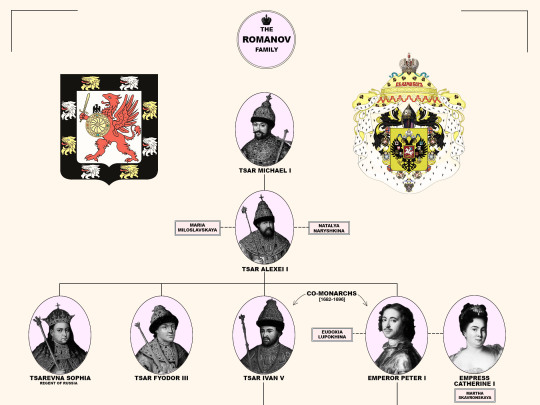
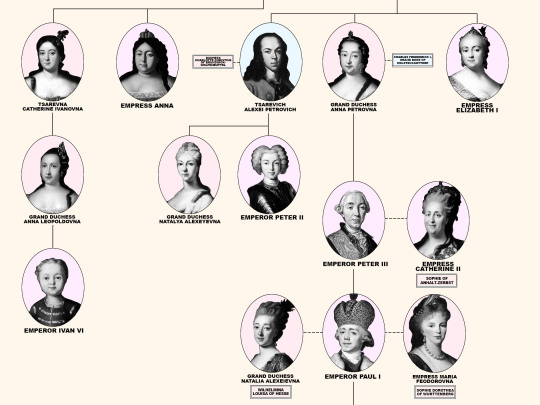
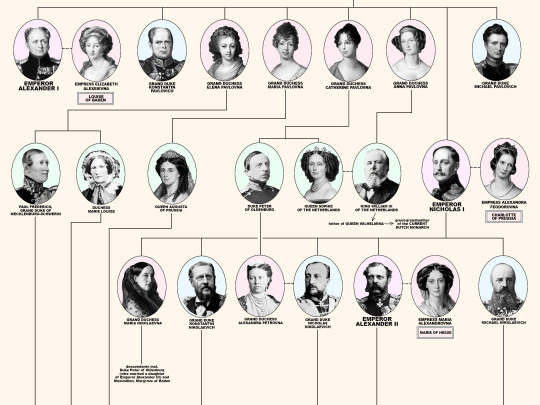
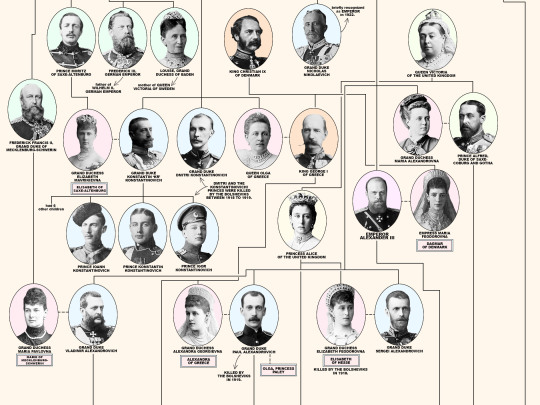
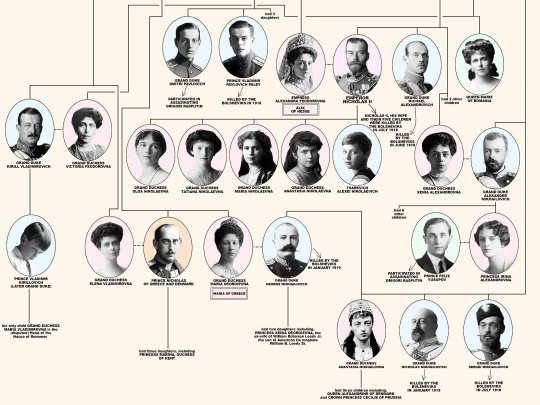
Members of the House of Romanov, the last reigning Dynasty of Russia.
From the first Romanov Russian Tsar Michael I (reigned 1613-1645) until the last Emperor Nicholas II (reigned 1894-1917). Including the 18 members of the house executed from 1918 until 1919; Grand Duke Michael Alexandrovich (13 June 1918). Nicholas II, Empress Alexandra Feodorovna, Grand Duchesses Olga Nikolaevna, Tatiana Nikolaevna, Maria Nikolaevna, Anastasia Nikolaevna, and Tsarevich Alexei Nikolaevich (17 July 1918). Grand Duchess Elizabeth Feodorovna, Grand Duke Sergei Mikhailovich, Prince Ioann Konstantinovich, Prince Konstantin Konstantinovich, Prince Igor Konstantinovich, and Prince Vladimir Paley (18 July 1918). Grand Duke Paul Alexandrovich, Grand Duke Dmitri Konstantinovich, Grand Duke Nicholas Mikhailovich, and Grand Duke George Mikhailovich (28 January 1919).
#romanovs#history#nicholas ii#alexandra feodorovna#olga nikolaevna#tatiana nikolaevna#maria nikolaevna#anastasia nikolaevna#alexei nikolaevich#myedits#peter i#peter ii#Peter iii#peter iii#Catherine the great#tsar alexei i#tsar michael#tsar paul i#alexander i#alexander ii#alexander iii#nicholas i#ancestry
397 notes
·
View notes
Text
Grand Duchess Elizabeth was born Her Grand Ducal Highness Princess Elisabeth Alexandra Louise Alice of Hesse and by Rhine on November 1, 1864, the second child of Grand Duke Ludwig IV and his wife, born Princess Alice of Great Britain, a daughter of Queen Victoria. Princess Elizabeth married Grand Duke Sergei Alexandrovich, brother of Emperor Alexander III.
The young Grand Duchess was adored by the Imperial family and the Russian court for her beauty, kindness, and her ready adoption of Russian language, customs, and her ardent conversion to Orthodoxy.
Elizabeth and Serge moved to Moscow in 1894, when Serge was made Governor General of Moscow. Though Elizabeth had loved life in Saint Petersburg, it was not until her move to Moscow that began to see and understand what she was able to do for the less fortunate. She became very conscious of her role in helping the impoverished of Moscow, and sponsored benefits and charities in Moscow to help the poor and unfortunate.
In 1905, while driving through the Kremlin, an anarchist threw a bomb beneath her husband's carriage which exploded, tearing him to pieces, and killing him instantly.
Elizabeth remained in mourning, and in 1909, she took the veil and founded the Convent of Martha and Mary in Moscow. Elizabeth sold or gave away all her jewelry and possessions and assembled the funds to build the convent. The convent grew, and even during her lifetime, the Grand Duchess was called a saint by the poor of the capital. The convent, based on old Novgorod models, was an architectural jewel.
The convent grew and prospered until the Revolution. By 1918, her presence was finally no longer tolerated by the Revolutionary government, and she was arrested. They then exiled her first to Perm, then to Yekaterinburg, where she spent a few days and was joined by others: the Grand Duke Sergei Mikhailovich Romanov; Princes Ioann Konstantinovich, Konstantin Konstantinovich, Igor Konstantinovich and Vladimir Pavlovich Paley; Grand Duke Sergei’s secretary, Feodor Remez; and Varvara Yakovleva, a sister from the Grand Duchess’s convent. They were all taken to Alapaevsk on May 20, 1918, where they were housed in the Napolnaya School on the outskirts of the town.
On the night of July 17th, the prisoners were woken and driven in carts on a road leading to the village of Siniachikha. Some 18 kilometres from Alapaevsk there was an abandoned iron mine with a pit, twenty metres deep. The Cheka beat all the prisoners before throwing their victims into this pit, Elizabeth being the first. Hand grenades were then hurled down the shaft.
On October 8, 1918, the White Army discovered the remains of Elizabeth and her companions, still within the shaft where they had been murdered. Elizabeth had died of wounds sustained in her fall into the mine, but had still found strength to bandage the head of the dying Prince Ioann. Her remains were removed and ultimately taken to Jerusalem, where they lie today in the Church of Mary Magdalene.
Elizabeth was glorified by the Russian Orthodox Church Outside of Russia in 1981, and by the Patriarchal Russian Orthodox Church in 1992 as the New-Martyr Elizabeth. Her principal shrines are the Marfo-Mariinsky Convent, and the St. Mary Magdalene Convent on the Mount of Olives, which she and her husband helped build, and where her relics (along with the Nun Barbara) are enshrined. The convent was returned to the church and reopened in 1992 and the cathedral church in 2006, continuing St. Elizabeth’s work.
On this day, 105 years ago, on July 18th, 1918.
Grand Duchess Elisabeth Feodorovna was murdered by being thrown down a disused mine shaft in Siniachikha, Russia.
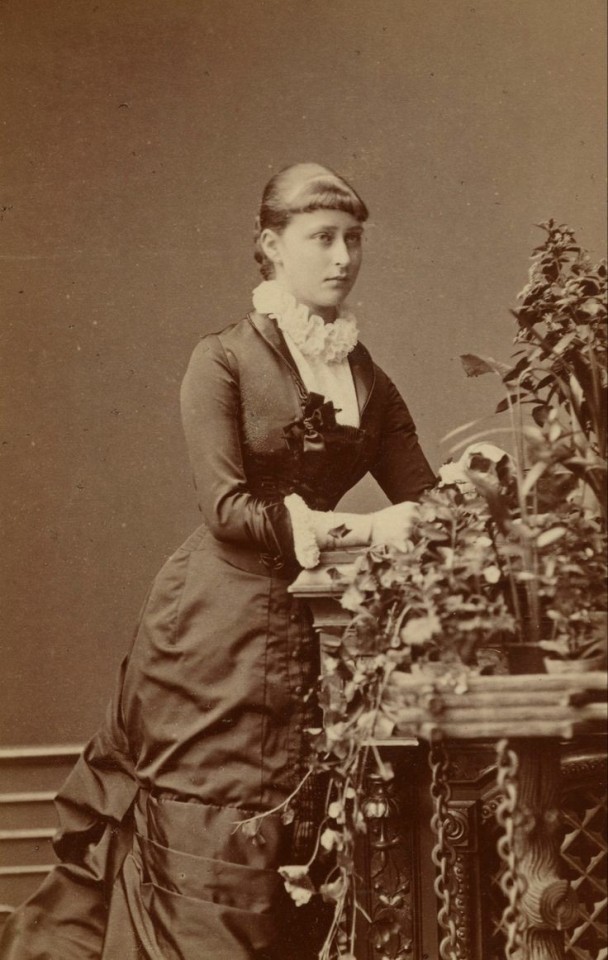

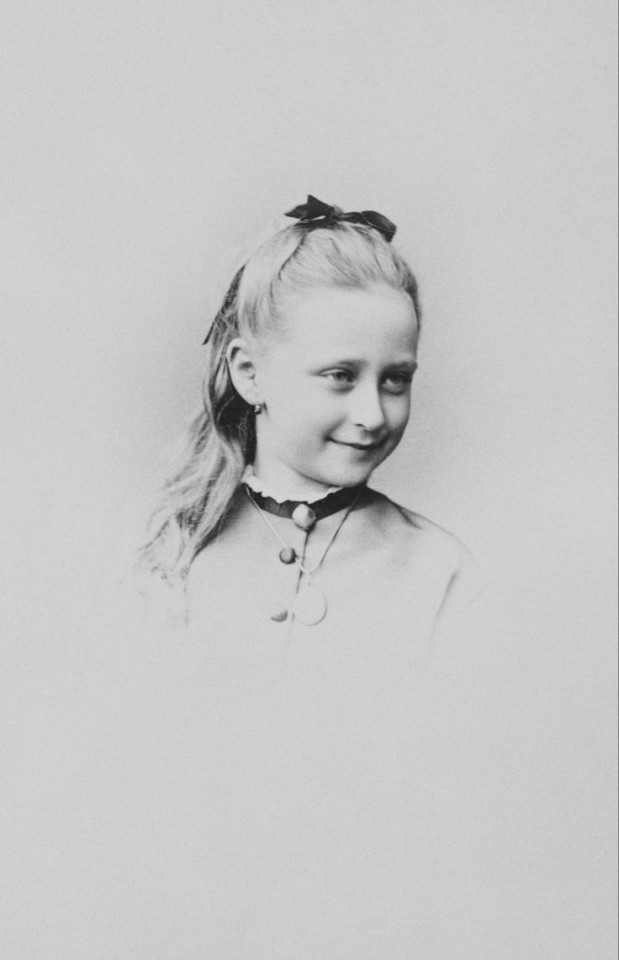



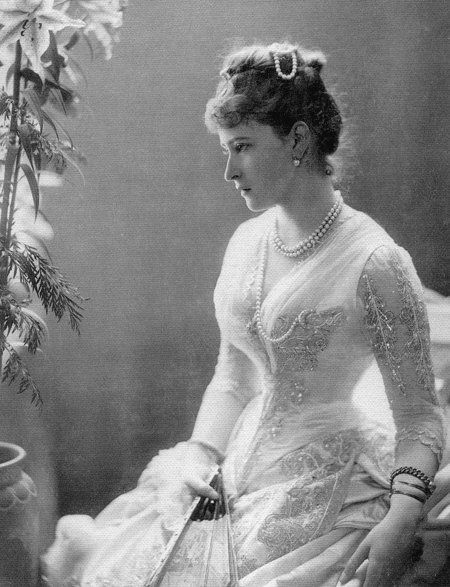


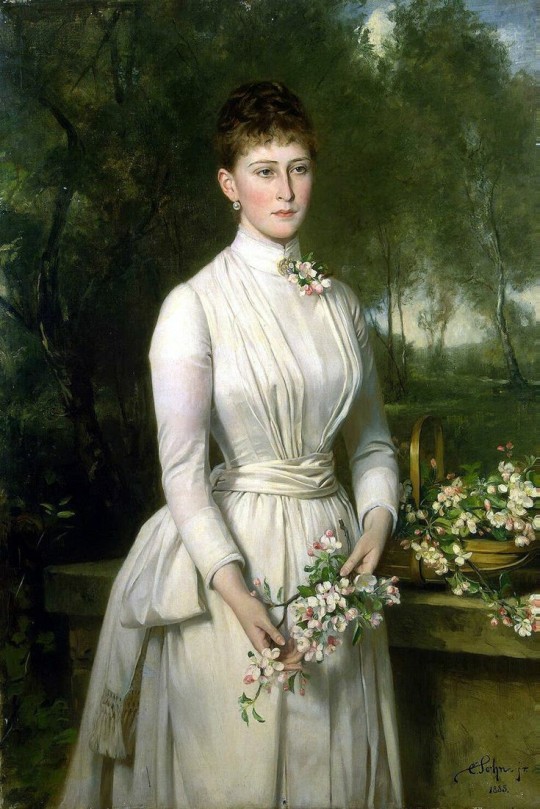
#russian history#romanov dynasty#Grand Duchess Elizabeth Feodorovna#Grand Duke Sergei Mikhailovich#Prince Vladimir Pavlovich Paley#Prince Ioann Konstantinovich#Prince Konstantin Konstantinovich#Prince Igor Konstantinovich#Feodor Remez#Barbara Yakolevna#Saint Mary Magdalene Convent#Alapaevsk
66 notes
·
View notes
Text

The Death of the Empire by Y. P. Karpenko
“Nicholas the Last
Charles I and Louis XVI were publicly executed after open trials. Nicholas II was secretly shot in a provincial basement along with his immediate family (and four members of his staff). It was a small room and it contained eleven victims and eleven killers. They were supposed to concentrate on one victim each, but the killers were soon firing at random. Those still alive when the gunsmoke cleared were disposed of by bayonet or further shots to the head. The bodies were transported by truck to a disused goldmine; sulfuric acid was poured on their faces before burial elsewhere—to make the Romanovs harder to identify.
In his "Introduction, 1971," as we have seen, Edmund Wilson was forced to give ground on the question of Lenin's amiability and benevolence (his words). It may seem sadistic to go on quoting him, but Wilson was distinguished and representative and by no means the worst offender (he is by now allowing that he "had no premonition that the Soviet Union was to become one of the most hideous tyrannies that the world had ever known, and Stalin the most cruel and unscrupulous of the merciless Russian tsars"). Toward the end of the piece, however, Wilson is still trying to account for Lenin's bad manners. Were they attributable, perhaps, to the poor breeding of Lenin's father? "Lenin himself, although his mother came from a somewhat superior stratum, and though Lenin distinguished himself as a scholar, had always rude and rather vulgar traits." Wilson regretfully adds:
. . . I have found that it was not true, as I had been led to suppose—this matter was hushed up in the Soviet Union—that Lenin knew nothing about and had not approved the execution of the royal family. Trotsky—and, one imagines, also Lenin—were both extremely cold-blooded about this. . . .
He then quotes, without comment, Trotsky's page-long rationalization of the murders. Indeed, Wilson writes as if regicide—and bad manners—were Lenin's only blemishes; and maybe he was "led to believe" that there were no others. It is a bizarre emphasis. The clouds of ignorance part, revealing the solar fire of archaic snobbery.
Trotsky had half a point when he said (elsewhere) that the Romanov children paid the price for the monarchical principle of succession. This would certainly apply to the Tsarevich, Alexis; but the four girls could expect no such inheritance—and neither could the doctor, the valet, the maid, the cook, or the dog. Wilson quotes Trotsky's Diary in Exile (1935):
The execution of the Tsar's family was needed not only to frighten, horrify and dishearten the enemy, but also in order to shake up our own ranks, to show them that there was no turning back, that ahead lay either complete victory or complete ruin. In the intellectual circles of the Party there probably were misgivings and shakings of heads. But the masses of workers and soldiers had not a minute's doubt. They would not have understood and would not have accepted any other decision. This Lenin sensed well.
But Trotsky is lying. The masses of workers and soldiers were not told of the "decision" to execute the entire family; for almost a decade they were told, instead, that the Tsarina and her children were in "a place of security." Nor was it proclaimed, as an additional morale-stiffener, that the Cheka had simultaneously murdered Grand Duchess Yelizaveta Feodorovna, Grand Duke Sergei Mikhailovich, Prince Ivan Konstantinovich, Prince Konstantin Konstantinovich, Prince Igor Konstantinovich and Count Vladimir Paley. This group was recreationally tortured, ante mortem. Grand Duke Sergei was dead on arrival, but the rest were thrown alive into the mine shaft where their bodies were eventually found.
The murder of the Romanovs seems to me fractionally less odious than, say, the murder of a Cossack family of equivalent size. The Tsar, at least, was guilty of real crimes (the encouragement of pogroms, for example). His end provoked, among the masses, little comment and no protest. The murder of the Tsarina and the five children was clearly seen by the Bolsheviks as a political deficit. It was therefore an irrational act, an expression of anger and hatred, though you can imagine how it was parlayed into an assertion of Bolshevik mercilessness, of "stopping at nothing." The ancillary killings sent no message to the Red Army or to the Party rump (except as a rumor). It sent a message to the Politburo, and the message said: we will have to win now, because we at last deserve anything they care to do to us if we fail. The Romanovs were murdered in mid-July 1918. By this time the regime had lost much of its pre-October support, and was responding with hysterical insecurity—that is, with violence. On September 3 and 5 came the decrees legitimizing the Red Terror.
There are several accounts, written or deposed, by the guards, executioners and inhumers of the Romanovs. One of the inhumers said that he could "die in peace because he had squeezed the Empress's ——." Imagining this, we arrive at a representative image of the gnarled hand of October. One executioner wrote (and he is quoted here for the dullness of his moral tone):
I know all about it. The shooting was all over the place. I know that . . . Medvedev took aim at Nicholas. He just shot at Nicholas . . . Anyway, it was just another sentence that had to be carried out, we looked on it as just another chore. . . . Of course, you start to think about its historical importance. . . . In fact, the whole thing was badly organized. Take Alexei, it took a lot of bullets before he died. He was a tough kid.
Yes, an imposing enemy: a thirteen-year-old hemophiliac. The Tsarevich outlived Nicholas II (resonantly and deservedly known also as Nicholas the Last). In those final seconds, then, the child was Alexander IV. Or Alexander the Last—but undeservedly.” - Martin Amis, ‘Koba the Dread: Laughter and the Twenty Million’ (2002) [p. 53 - 57]
#amis#martin amis#koba#stalin#lenin#trotsky#bolsheviks#communism#russia#tsar#nicholas#romanov#edmund wilson
8 notes
·
View notes
Note
There are many rumors about the marriage of GD Sergei and Elizabeth. I wonder why he was so jealous of his wife? Yes, she was one of the most beautiful women in Europe and the other was Empress Elizabeth of Austria. But do you think it is normal for her to be very jealous when even her husband Franz Joseph is not that jealous? He was jealous of everyone, even his own brother. GD Konstantin also wrote this in his diary, I think a friend of mine told him. What do you think about this?
Hi! Grand Duke Sergei Alexandrovich had a reputation for being a rather difficult person to deal with—his cousin, Grand Duke Alexander Mikhailovich, even said "Try as I will, I cannot find a single redeeming feature in his character… Obstinate, arrogant, disagreeable, he flaunted his many peculiarities in the face of the entire nation!”—and he was known for his jealous tendencies, so it isn’t surprising that there were rumors. Ella was pretty much Sergei’s opposite in that she was very popular in society, and I would guess that that might have been the source of his jealousy.
7 notes
·
View notes
Text


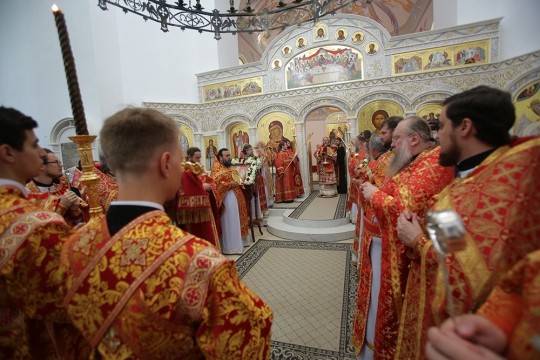

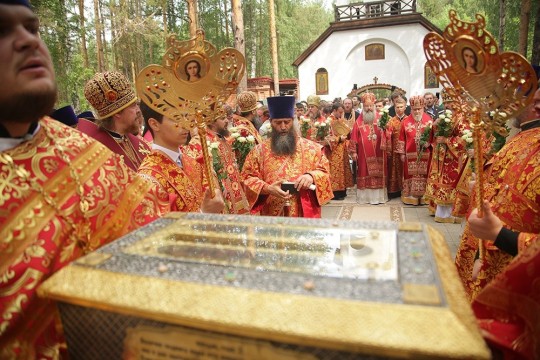
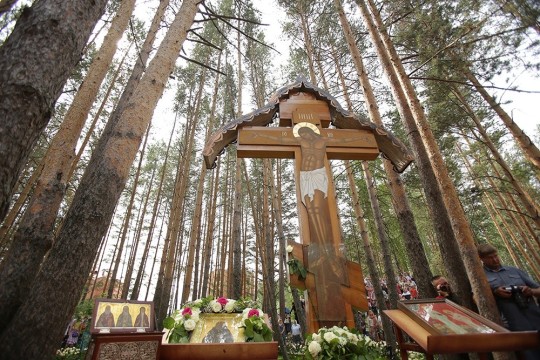
Borne to God on Angelic Hymns
Photos from the 100th Anniversary Celebration of the Martyrdom of St. Elizabeth the Grand Duchess and Those With Her
A host of bishops of the Russian Orthodox Church celebrated the 100th anniversary of the martyrdom of St. Elizabeth the Grand Duchess, the Nun Barbara, and Grand Duke Sergei Mikhailovich Romanov, the Princes Ioann Konstantinovich, Konstantin Konstantinovich, Igor Konstantinovich, and Vladimir Pavlovich Paley, and Grand Duke Sergei's secretary Fyodor Remez martyred with them yesterday at the site of their martyrdom.
The celebration followed the festivities in honor of the 100th anniversary of Tsar Nicholas II, Tsarina Alexandra, and their children and faithful servants the day before in Ekaterinburg. St. Elizabeth the New Martyr was the sister of Tsarina Alexandra.
The service in honor of Sts. Elizabeth, Barbara, and those with them was headed by His Eminence Metropolitan Kirill of Ekaterinburg and Verkhotursky, with the concelebration of twelve other hierarchs and the clergy of the Metropolitanate of Ekaterinburg.
Following the service, the hierarchs, clergy, and faithful processed to the mine where the bodies of the holy martyrs were thrown on the night of July 17-18, 1918. A moleben was celebrated at the mine, followed by the singing of the Cherubic Hymn, which the martyrs sang throughout the course of several days within the mine until they finally departed to the Heavenly Kingdom. As the hymn was being sung, the mine, which has become a place of pilgrimage for hundreds of thousands from throughout the world, was censed. Particles of the relics of St. Elizabeth were brought out of the church for veneration.
Met. Kirill of Ekaterinburg then addressed the congregation with an archpastoral homily:
For us, believers, today is the day of our personal relationship to Elizabeth Feodorovna and to all the martyrs of the Russian Church and Russian land, who … now defend holy Orthodoxy so our people might live not under the seal of the Satanism, but under the blessing of God. And today, when we incline our heads and the knees of our hearts at this mine, we see the meek face of Elizabeth Feodorovna and her loving heart, which forgives all: the killers and their successors, and prays for all—for our people, and for us today, that this cruelty, this antipathy, this lack of understanding of one another has finally gone from our lives, and we have again become one, great, powerful Russian people, the name and banner of which is the banner of Christianity and the name of Christianity, and the protection of which is the saints of God, who stand before the throne of God today for our infirmity, tearfully praying for us, for our lives, bitter and often unjust.
Among other guests, the service was attended by the head of the Russian Imperial House of Romanov, Grand Duchess Maria Vladimirovna and her son and other members of the Romanov family.
Photos: The Diocese of Ekaterinburg Text: OrthoChristian.com
11 notes
·
View notes
Text
Rest in peace!! 😭💔
On this day: July 18th 1918, The Bolsheviks took several Romanovs to a mine shaft in Alapaevsk and brutally murdered them. These victims were:
Grand Duchess Elisabeth Feodorovna, Grand Duke Sergei Mikhailovich, Prince Ioann Konstantinovich, Prince Konstantin Konstantinovich, Prince Igor Konstantinovich, and Vladimir Pavlovich Paley, along with nun, Varvara Yakovleva and Feodor Semyanovich Remez
Photos of the tragic dead bodies of the victims and other photos from the murder.
⚠️ !!!TRIGGER WARNINGS!!! ⚠️
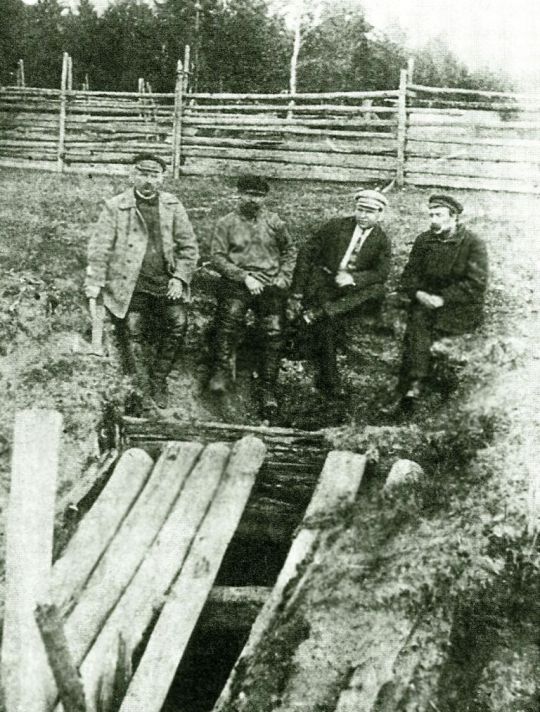
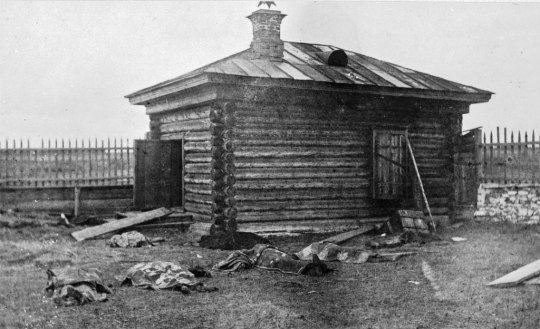
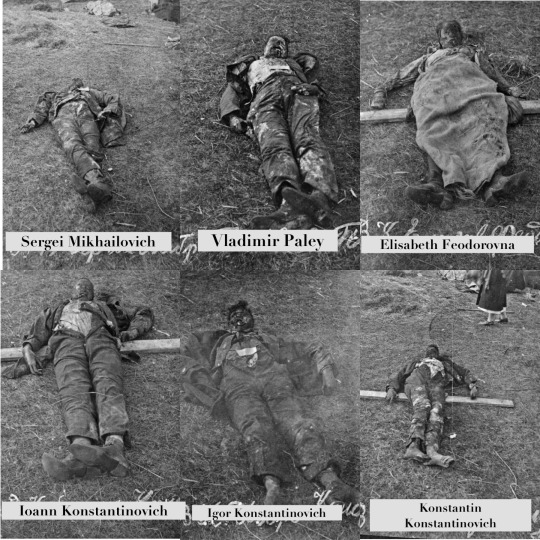
May their souls rest in peace ❤️🩹🕊️✨
#grand duchess elisabeth feodorovna#elisabeth of hesse#grand duke sergei mikhailovich#prince konstantin konstantinovich#prince ioann konstantinovich#prince igor konstantinovich#vladimir paley#romanovs#royal death anniversary
50 notes
·
View notes
Text
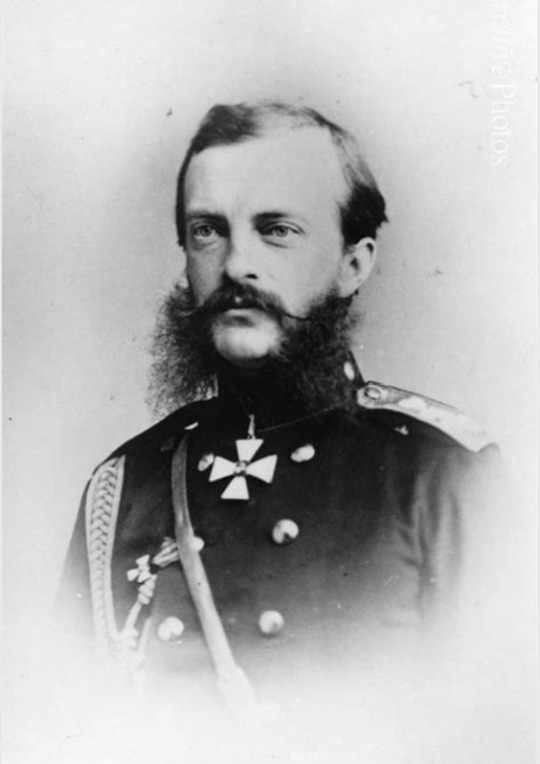
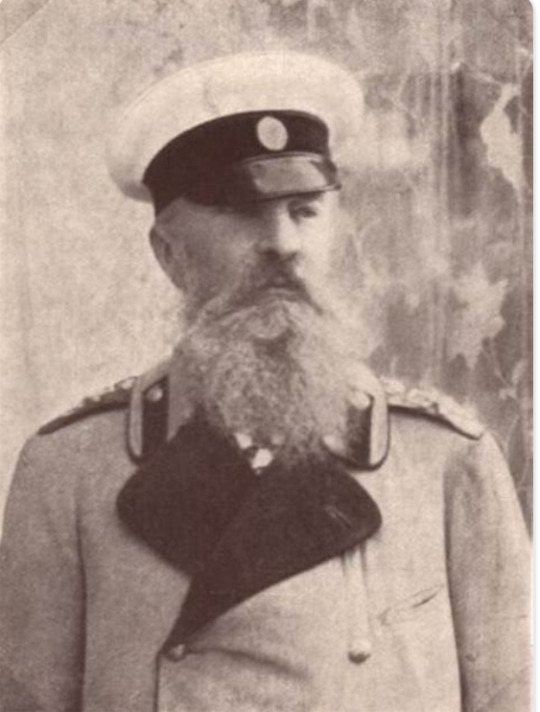
Grand Duke Mikhail Nicholaievich (1832 - 1909)
Grand Duke Mikhail Nicholaievich was the youngest son of Nicholas I. He had a successful career as the Governor General of the Caucasus and later as part of the Tsar's Advisory Council (by then, Alexander III was Tsar.) He served under four Tsars in the course of his life and was the last Field Marshal created in Russia. The Romanovs loved him and considered him a "grand seigneur" with exquisite manners and perfect command of etiquette.
"Uncle Misha," as he was sometimes called, was the father of Grand Duchess Anastasia Mikhailovna and the so-called "Wild Caucasians," his six sons, all Grand Dukes, with a mind of their own and loud voices which they did not hesitate to use. It is practically impossible to discuss the last thirty years of the Russian Empire without mentioning one of Grand Duke Mikhail's sons.
His wife, the formidable Princess Cecilie of Baden (Grand Duchess Olga Feodorovna), a very intelligent but not very likable woman raised their progeny (with an iron fist.) She pre-deceased him by many years. "Uncle Misha" had a stroke and spent the last few years of his life living with his daughter in the South of France. All the Romanovs visited him there at some time or another.
Once "Uncle Misha" died, the semblance of union that existed among the Romanovs at that point, disappeared. The Dynasty might not have crumbled, but the family did.
The "Wild Caucasians" (or, more correctly, the Mikhailovichi) from left to right:
Grand Duke Nicholas Mikhailovich ("Uncle Bimbo), Grand Duchess Anastasia Mikhailovna (Stasi), Grand Duke Mikhail Mikhailovich (Miche-Miche), Grand Duke Georgiy Mikhailovich (Gogi), Grand Duke Alexander Mikhailovich (Sandro), Grand Duke Sergei (no nickname that we know off) and Grand Duke Alexis Mikhailovich, who died at age 20.
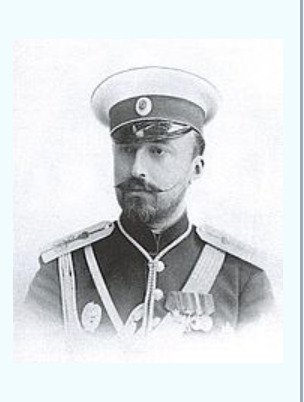
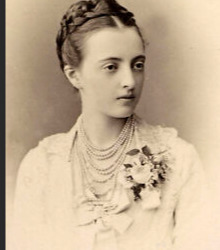

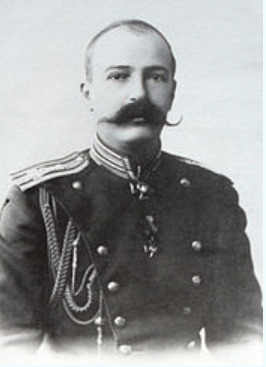
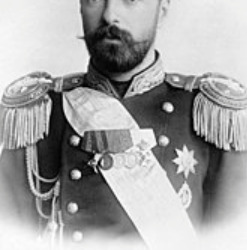
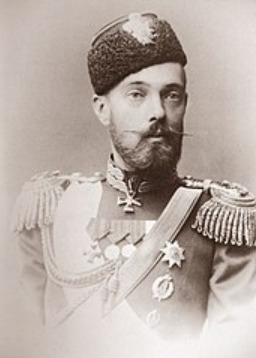
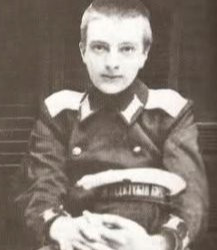
#russian history#romanov dynasty#Grand Duke Mikhail Nicholaevich#Grand Duke Nicholas Mikhailovich#Grand Duke Alexander Mikhailovich#Grand Duke Sergei Mikhailovich#Grand Duke George Mikhailovich#Grand Duchess Anastasia Mikhailovna#Grand Duke Alexis Mikhailovich#Grand Duchess Olga Feodorovna#Tsar Nicholas I
12 notes
·
View notes
Text

Grand Duke Sergei Mikhailovich.
1 note
·
View note
Text
I love this picture! I had recreated it from pieces. This# is the first one I see that appears whole, and there are many grand dukes and two grand successes in it. There are three I don't recognize who are probably Oldenbergs. If I am not mistaken, this was at some function honoring Grand Duke Georgie, who has passed recently. Great find!

Nicholas II and Alexandra Feodorovna with members of the extended Romanov family.
#romanov#alexandra feodorovna#maria pavlovna the elder#peter of oldenburg#dmitri konstantinovich#pavel alexandrovich#sergei mikhailovich#vladimir alexandrovich#grand duke konstantine konstantinovich#elena vladimirovna#nicholas ii
47 notes
·
View notes
Text

Grand Duke Sergei Mikhailovich, 1890s.
25 notes
·
View notes
Text
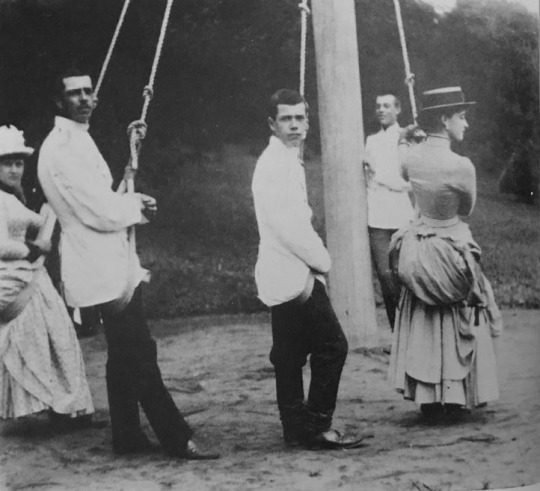
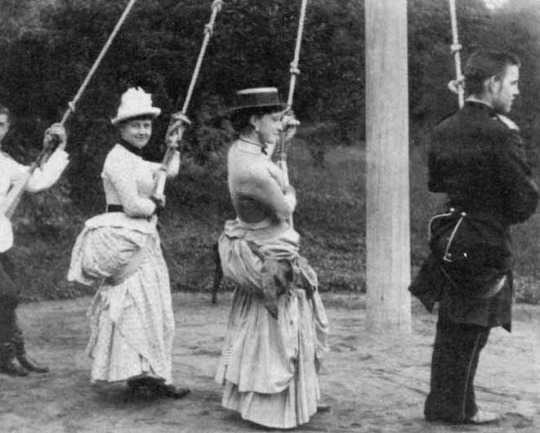
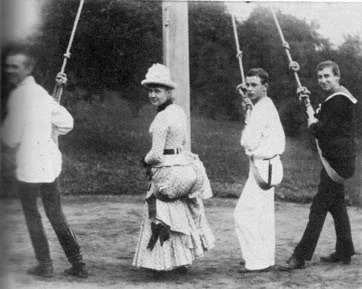
Relatives 1887
Tsesarevich Nicholas, Elizabeth feodorovna, Alexander mikhailovich,Prince Constantine, Nicholas of Greece, Maria Goergovna,Sergei Mikhailovich, George Alexandrovich.
#tsesarevich nicholas#elizabeth feodorovna#george alexandrovich#prince constantine#prince nicholas of greece and denmark#Maria georgovna#Alexander mikhailovich#sergei mikhailovich#1880s#romanovs#nicholas ii#king constantine i#elizabeth of hesse#grand duke george
16 notes
·
View notes
Text
In the fall of 1902, the tsar’s youngest uncle, Grand Duke Paul, had actually run away to Paris, taking with him suitcases holding three million rubles. Paul suffered from periodic nervous breakdowns and never seemed able to put his life together in a constructive fashion. Now he had decided to marry a new love, his mistress, a divorcee, Olga Pistolkors, whom the family considered not only an outrageously inappropriate choice for Paul, but also an unattractively ambitious, even brazen woman. A commoner and, in the judgment of many, a “fornicator,” she had appeared at a Winter Palace ball wearing diamonds bequeathed to Paul by his mother, the late Empress Maria Alexandrovna. Every Romanov recognized imperial jewels. Minnie demanded that Madame Pistolkors be expelled from the party and the chamberlain thereupon asked the woman to leave, causing an immense scandal.
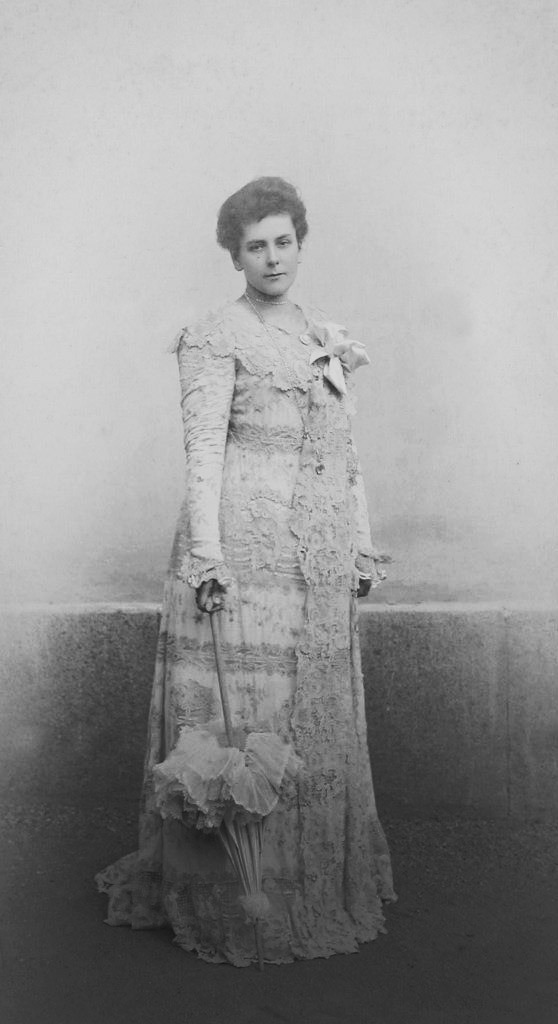
She was said to have Paul completely under her thumb. When Nicholas heard the news that Paul had eloped, he exploded with rage. Paul had given his word he would not do so. Paul’s brothers were also fiercely indignant. Vladimir wrote to Sergei: “He [Paul] has behaved shamelessly as a member of our family and as a military man. His behavior cannot be called anything but criminal. And to her I said plainly that if she will become the wife of my brother, I will turn my back on her and she will never in life see my face again. What will become of him? How will he be able to live the life of an outcast? What will become of the children? My heart is heavy, my head is empty. . . . I repeat to you that I am crying for help and I embrace you with my heart filled with sadness.”
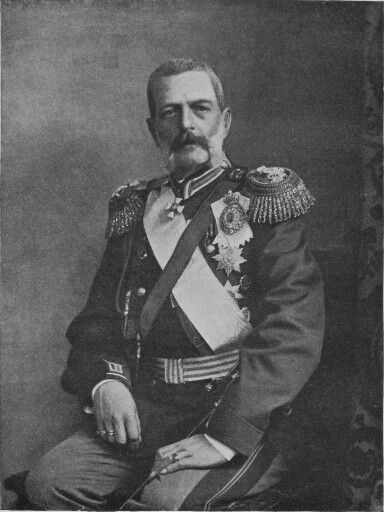
Minnie wrote to Nicky of her indignation. “He [Paul] has forgotten everything, all his fundamental obligations, his children, country, service, honour, everything, he has sacrificed everything for that stupid woman, who is not worthy of it. . . . He’s simply throwing dirt at our family! Awful, awful!”
Nicholas stripped Paul of his army rank and grand ducal income. Despite his exile in France, the millions he took with him ensured that Paul could live comfortably. His house in Paris became a center for the local Russian colony and his wife, now using the foreign title of Countess Hohenfelzen, could play a queenly social role, freely associating with members of the imperial family who were visiting France, so little were the laws of the family and the authority of Nicholas II respected.
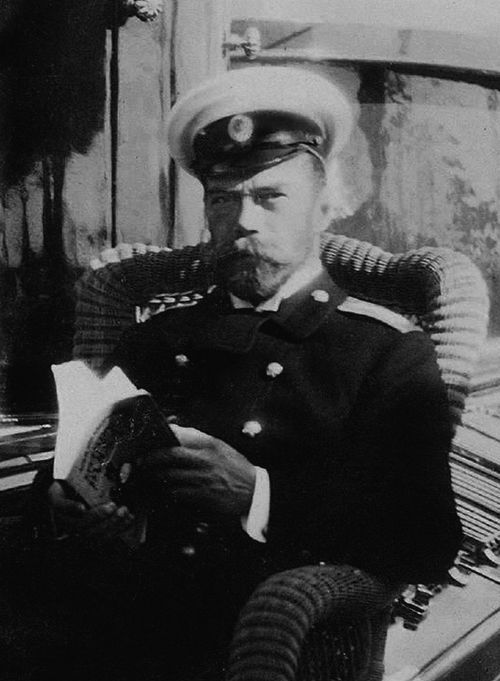
The tsar wrote his mother about Paul: “How painful and distressing it all is and how ashamed one feels for the sake of our family before the world! What guarantee is there now that Kyril won’t start the same sort of thing tomorrow and Boris or Sergei Mikhailovich the day after? And in the end, I fear, a whole colony of members of the Russian Imperial Family will be established in Paris with their semi-legitimate and illegitimate wives! God alone knows what times we are living in, when undisguised selfishness stifles all feelings of conscience, duty or even ordinary decency!”
Other older members of the family also shook their heads and worried about the younger ones, who seemed only to want the royal life of luxury without accepting the responsibilities it should entail.
"The Flight of the Romanovs" - John Curtis Perry and Constantine V. Pleshakov
#romanov#paul alexandrovich#imperial russia#imperial family#royalty#grand duke#olga paley#vladimir alexandrovich#nicholas ii#maria feodorovna#scandal#paris#morganatic marriages
7 notes
·
View notes